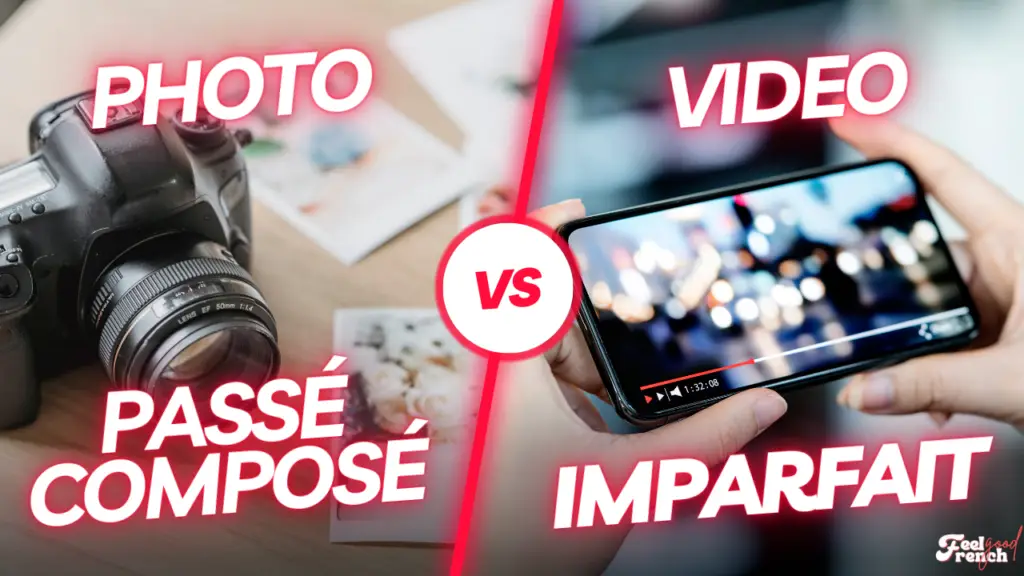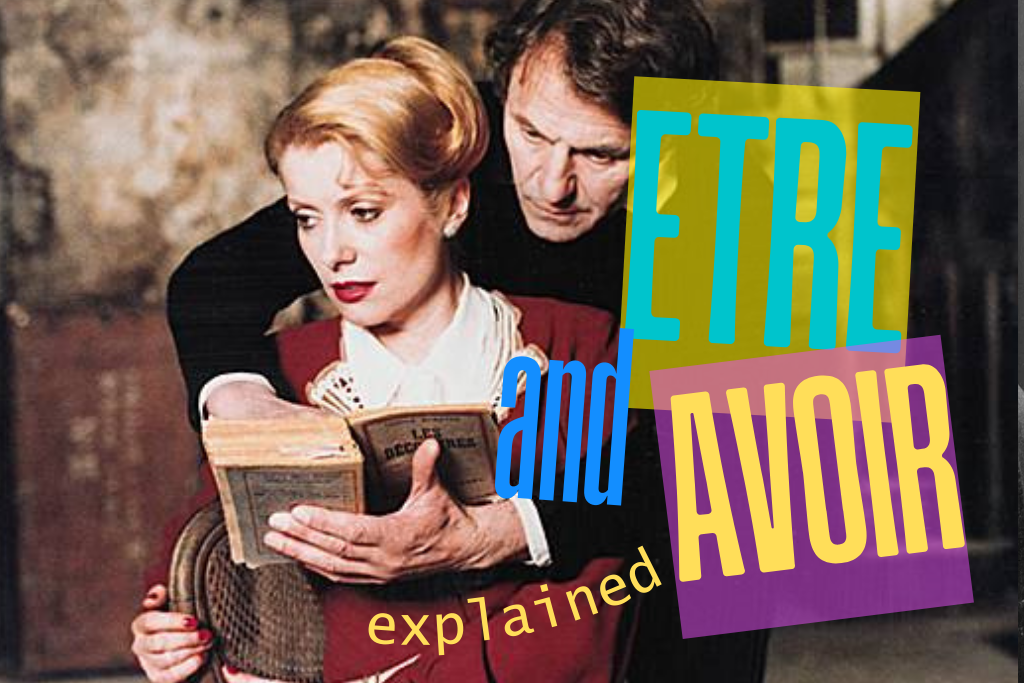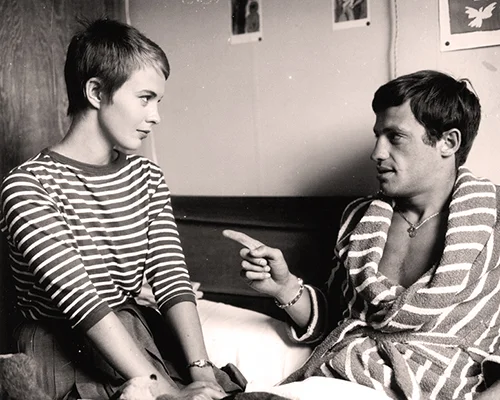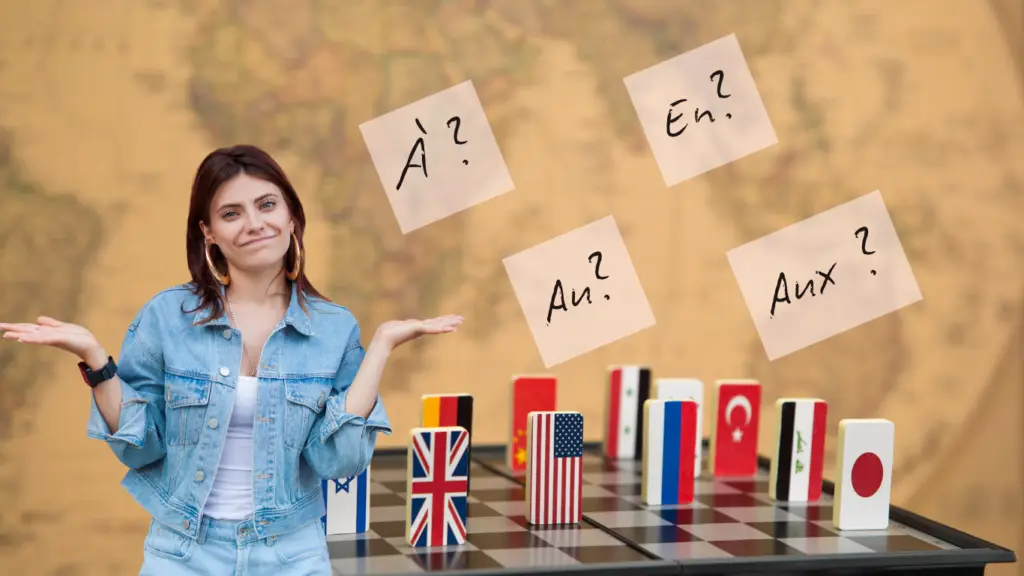“Hier, j’ai vu un film au cinéma.” → A specific event, completed action → passé composé.
“Quand j’étais enfant, je regardais souvent des films le dimanche soir.” → A habit, a repeated action → imparfait.
Mastering the difference between imparfait and passé composé is one of the biggest challenges for French learners. Both tenses describe actions in the past, but they are used in different ways. The key to understanding them is this simple image:

Passé composé = Camera → Click! A snapshot of a specific moment or completed action.
Imparfait = Video → A continuous or repeated action, an ongoing background or habit.
In this guide, you’ll learn exactly when to use imparfait and passé composé. We’ll cover pronunciation differences, provide lots of examples, and help you practice with exercises.
Imparfait vs Passé Composé: The Core Difference
The difference between imparfait and passé composé lies in how the action is perceived.
| Tense | Image | Description | Example |
|---|---|---|---|
| Passé composé | Camera – Click! | A specific, completed action in the past | J’ai mangé une pizza hier soir. |
| Imparfait | Video – Continuous | An ongoing or repeated action in the past | Quand j’étais enfant, je mangeais une pizza tous les dimanches. |
Passé Composé = Snapshot of a completed event

Passé composé marks an action that started and ended at a specific time. It answers the question “What happened?”
Examples:
J’ai terminé mes devoirs à 18 heures. → I finished my homework at 6 PM.
Elle est arrivée à la maison à midi. → She arrived home at noon.
Tout à coup, il a commencé à pleuvoir. → Suddenly, it started raining.
Il a vu un oiseau rare ce matin. → He saw a rare bird this morning.
Imparfait = Background video

Imparfait describes an ongoing action or state in the past without a clear endpoint. It answers the question “What was going on?” or “What was the situation?”
Examples:
Il faisait beau quand je suis sorti. → It was sunny when I went out.
Quand j’étais petit, je jouais au foot tous les dimanches. → When I was little, I used to play soccer every Sunday.
Elle dormait quand le téléphone a sonné. → She was sleeping when the phone rang.
Nous parlions de notre voyage quand il est arrivé. → We were talking about our trip when he arrived.
How to Form French Past Tenses: Passé Composé and Imparfait
Passé Composé
Passé composé is formed with the auxiliary avoir or être + the past participle of the verb.
| Auxiliary | Formation | Example |
|---|---|---|
| Avoir | avoir + past participle | J’ai mangé. → I ate. |
| Être | être + past participle (with agreement) | Elle est arrivée. → She arrived. |
Agreement Rules with Être:
The past participle agrees with the subject in gender and number.
Examples:
- J’ai parlé avec lui ce matin. → I spoke with him this morning.
- Elle est partie à 9 heures. → She left at 9 o’clock.
- Ils sont venus hier soir. → They came last night.
- Elle est allée (she went), Ils sont partis (they left).
Imparfait
Imparfait is formed from the stem of the “nous” form of the present tense + endings:
| Subject | Ending | Example (parler) | Example (finir) |
|---|---|---|---|
| Je | -ais | Je parlais | Je finissais |
| Tu | -ais | Tu parlais | Tu finissais |
| Il/Elle/On | -ait | Il parlait | Il finissait |
| Nous | -ions | Nous parlions | Nous finissions |
| Vous | -iez | Vous parliez | Vous finissiez |
| Ils/Elles | -aient | Ils parlaient | Ils finissaient |
Examples:
- Quand j’étais enfant, je regardais souvent la télé. → When I was a child, I often watched TV.
- Il pleuvait hier soir. → It was raining last night.
- Nous jouions au foot tous les samedis. → We used to play football every Saturday.
If you want to double-check how to conjugate a verb to make sure you understand it right, you can use the website Le conjugeur.
Passé Composé vs Imparfait: Common Time Expressions
| Expression | Use with Imparfait | Use with Passé Composé |
|---|---|---|
| Hier | – | ✅ J’ai vu ce film hier. |
| Le lundi, le matin | ✅ Le lundi, je faisais du sport. | – |
| Tout à coup | – | ✅ Tout à coup, il est tombé. |
| Souvent | ✅ Je sortais souvent avec mes amis. | – |
| Une fois | – | ✅ Je suis allé à Paris une fois. |
| Pendant que | ✅ Pendant qu’il dormait, le téléphone a sonné. | – |
Difference in Pronunciation Between Imparfait and Passé Composé
The pronunciation of passé composé and imparfait can be subtle but important:
| Tense | Example | Pronunciation Rule |
|---|---|---|
| Passé composé | J’ai mangé | The final sound is always pronounced -é like [e] |
| Imparfait | Je mangeais | The final sound is pronounced -ais like [ɛ] (open “e” sound) |
Examples:
- J’ai parlé → Closed “é” sound
- Je parlais → Open “ɛ” sound
- Ils ont marché → Closed “é” sound
- Ils marchaient → Open “ɛ” sound
Exercises to Practice The French Past Tense – Passé Composé vs Imparfait
Exercice 1 : Complétez avec le passé composé ou l’imparfait

Il ____________ (pleuvoir) quand nous sommes sortis.
Hier, nous ____________ (aller) au cinéma après le dîner.
Quand elle était petite, elle ____________ (faire) de la danse classique.
Soudain, il ____________ (entendre) un bruit étrange.
À cette époque, nous ____________ (vivre) dans une petite maison de campagne.
Ce matin, il ____________ (oublier) son portefeuille.
Pendant qu’il ____________ (lire), le téléphone a sonné.
Tous les étés, nous ____________ (partir) en vacances à la montagne.
Elle ____________ (ouvrir) la porte et est entrée dans la pièce.
Quand j’étais enfant, je ____________ (avoir) peur du noir.
Exercice 2 : Corrigez les erreurs
Hier, je marchais au parc quand il pleuvait.
Elle a être très fatiguée après le match.
Nous avons partir en vacances chaque été.
Il a tombé de la chaise.
Quand j’étais jeune, j’ai aller à l’école à pied.
Elle chantait une chanson quand il ouvre la porte.
Exercice 3 : Dialogue à compléter
Complétez ce dialogue avec le passé composé ou l’imparfait :
Paul : Tu te rappelles de la soirée chez Marie ?
Sophie : Oui ! Quand je (1) __________ (arriver), tout le monde (2) __________ (danser) déjà.
Paul : Moi, j’y suis allé un peu plus tard. Marie (3) __________ (préparer) des cocktails quand j’ai sonné à la porte.
Sophie : Ah oui, et pendant qu’on (4) __________ (discuter), Thomas (5) __________ (mettre) de la musique.
Paul : Oui, je me souviens ! Et tout à coup, les lumières (6) __________ (s’éteindre) et on (7) __________ (entendre) un grand bruit !
Sophie : C’était le voisin qui (8) __________ (taper) contre le mur parce qu’on faisait trop de bruit !
Paul : Oui, on (9) __________ (éclater) de rire après ça !
Sophie : Ah, quelle soirée ! On (10) __________ (rentrer) très tard ce soir-là.
Exercice 4 : Complétez le texte avec le passé composé ou l’imparfait
L’été dernier, nous (1) __________ (décider) de partir en vacances à la montagne. Tous les matins, nous (2) __________ (se réveiller) tôt pour faire de longues randonnées. Un jour, alors que nous (3) __________ (marcher) sur un sentier, nous (4) __________ (entendre) un bruit étrange. C’était un petit chevreuil qui (5) __________ (essayer) de traverser la rivière. Nous (6) __________ (rester) immobiles et nous (7) __________ (observer) la scène en silence. Finalement, le chevreuil (8) __________ (réussir) à traverser et (9) __________ (disparaître) dans la forêt. C’était un moment magique que nous (10) __________ (ne jamais oublier).
Sign Up for the Feel Good French Newsletter
French Past Tense at a Glance – Grammar Cheat Sheet
And because visuals speak volumes, here’s a picture to sum up everything we covered today.

À bientôt! See you soon with a new French Lesson. If you want to continue learning, check the article to understand the difference between bon, bien, mieux et meilleur. Bonne pratique du français!
Déborah, Your French Teacher
When to Use Être or Avoir in French: Exercises With Real-Life Examples
If you live in France, even with basic French, you hear être and avoir everywhere….
Aimer in French: Meaning, Conjugation & Usage
Aimer in French looks simple. And in many ways, it is. It’s one of the…
Why “-ent” Is Silent in French Verbs (and Why That Matters)
If you’re an expat learning French, you’ve probably seen verbs ending in -ent and wondered…
How to Say “To Go” in French | Aller Verb Conjugation
The verb aller (to go) is one of the most essential and frequently used verbs…
French Sentences: Why You’re Getting Adjective Order Wrong (And How to Fix It)
Learning to place adjectives correctly in French sentences can be one of the most confusing…
Think You Know French Prepositions? À, En, Au, and Aux Might Surprise You!
“Je vais à Nice, en France, au marché… et aux urgences?” French prepositions of place…







